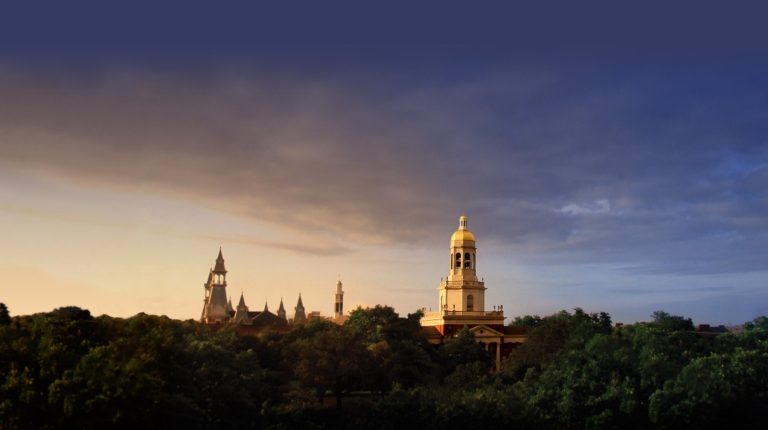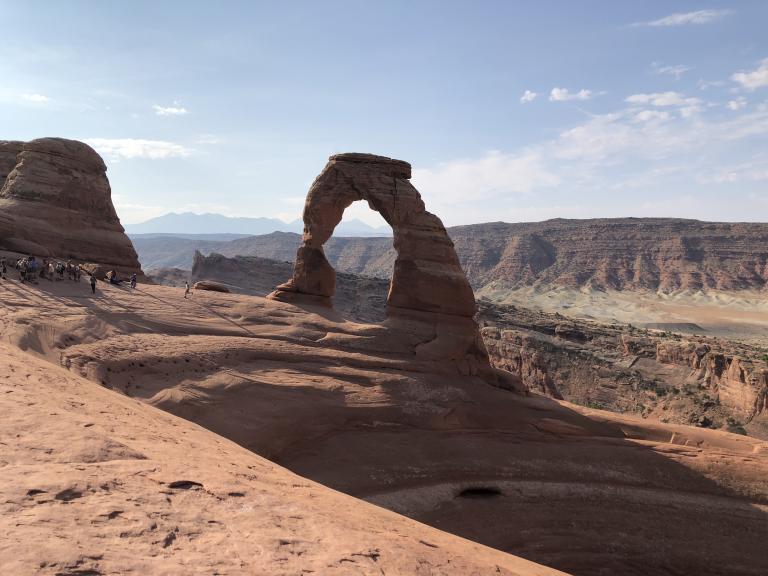Reimagining a History PhD–Doing Academia outside of Academia
Today we welcome Paul Gutacker (M.A. and Th.M. Regent College; Ph.D. Baylor University) to the Anxious Bench. Paul’s research focuses on religion and historical memory, particularly nineteenth-century American Protestants’ memory of the Christian past. In addition to teaching at Baylor, Paul and his wife Paige direct Brazos Fellows, a post-college fellowship centered on theological study, spiritual disciplines, and vocational discernment. They enjoy life in East Waco with their son James, daughter Marianne, and spaniel Lila.
A few months ago, I sat in a church classroom with a group of young adults, Dr. Bruce Hindmarsh, and a big pot of coffee. After leading us in a visual exploration of the Christian catacombs of Rome, Bruce, professor of the history of Christianity at Regent College, discussed with us the remarkable cultural and social significance of early Christian burial practices. Several weeks later, in the same room, Dr. David Bebbington asked this same group of students to consider the question: how did eighteenth-century evangelicals draw on early Christian practices? Not long after, Dr. Natalie Carnes, professor of theology here at Baylor, came by the this classroom to help us understand the complicated and fascinating history of iconography and iconoclastic controversies.
I get to be in this classroom for these conversations because I serve as director of Brazos Fellows, a nine-month fellowship for college graduates. Brazos Fellows helps young adults explore their vocation in a community that studies, works, and prays together—while aiming to bring together the life of the mind and the life of worship by situating serious theological and historical study in the local church. As you can imagine, this is immensely rewarding work for a religious historian such as myself. If you’d like to read more about the intellectual community Brazos Fellows seeks to cultivate, you can check out my recent post at the Baylor Graduate School blog.
In addition to directing Brazos Fellows, I teach as an adjunct in Baylor’s history department, where last year I received my PhD. My wife Paige and I hope that Brazos Fellows grows, becomes sustainable, and keeps us in Waco for the foreseeable future. But as we do this work and keep an eye on the academic job market, I often wonder what is at stake in the vocational choices we’ll make during the next few years.
On the one hand, I find myself drawn to the intersection of the academy and the local church—precisely where Brazos Fellows sits—and love the work I do helping young adults locate themselves in the story Christ is telling through his church. On the other hand, I want to continue to develop and publish my research, which I believe has something to add to present-day conversations both among scholars and in the church.
Can these things go together? Is it possible to do the work of a historian—to research, to publish, to belong to the guild—while teaching in a non-traditional academic setting? This question, it seems, will only become more pressing as the educational landscape continues to shift. As last year’s news from Gordon College illustrated all too well, the outlook for the humanities in general and history in particular is, well, quite grim. The bottom line is that there are fewer and fewer history jobs and more and more qualified applicants for those jobs. (But hey, at least we’re not English.)
At the same time, new possibilities are emerging for Christian scholars willing to teach in institutions other than the traditional college—from classical schools, to the Christian study center movement, to innovative programs at traditional seminaries, to the emergence of local, cohort-sized seminaries. This is to say nothing of the wide variety of opportunities opening up internationally, or work in areas other than education. As we like to remind our students, historians do all sorts of things, from policy research, to journalism, to social work, to church ministry. For reasons both of opportunity and calling, many with graduate-level historical training will choose to work elsewhere than the academy.
Assuming these trends continue, what will this mean for individual historians and for the guild? What unique challenges and opportunities exist for historians who work outside traditional academic settings? Will those in alt-academic jobs do their work at the expense of their scholarship? Or are there alternatives?
I know I’m not alone in asking this question—in part because I’ve sat across tables and put it to other historians in alt-academic careers. It seems that it’s time to invite others into this conversation. Perhaps I can offer here a few questions as an invitation, a starting point for a broader discussion:
- How do those who teach and work in non-traditional academic institutions cultivate their scholarship? How might they maintain their scholarly interests and productivity?
- Specifically, when it comes to research, what difficulties do alt-academics face in terms of access, funding, and support? What about in publishing? What doors open and close for them given their job title and institutional standing?
- How can historical organizations, conferences, and publishers create space for historians who don’t have the same degree of institutional backing and support? What room is there for well-trained, serious scholars who aren’t full-time or tenured faculty?
- How can we conceive of these historians as still belonging, in an important sense, to our scholarly community? What might these alt-academics contribute to the guild? What might they notice, what might they bring to the conversation, that would otherwise be missed?
I’d love to see these questions explored in conversions online and in person—perhaps even becoming a regular topic at conferences. I think these should be seen as hopeful questions, questions that invite us to consider anew what possibilities and opportunities might emerge for the guild amidst (or perhaps even because of) otherwise bleak trends.
And, as I’ve realized through my work with Brazos Fellows, these are hopeful questions because of our Christian understanding of calling. As the fellows often remind me, a Christian view of vocation teaches us that our identity is not found in our C.V., our job title, our productivity, or our prestige, but fully and fundamentally grounded in Christ. This is a truth that frees all Christians to hear and respond to God’s call—and a truth that frees up us historians to more creatively imagine and embark on our work in the rapidly changing world of higher education


